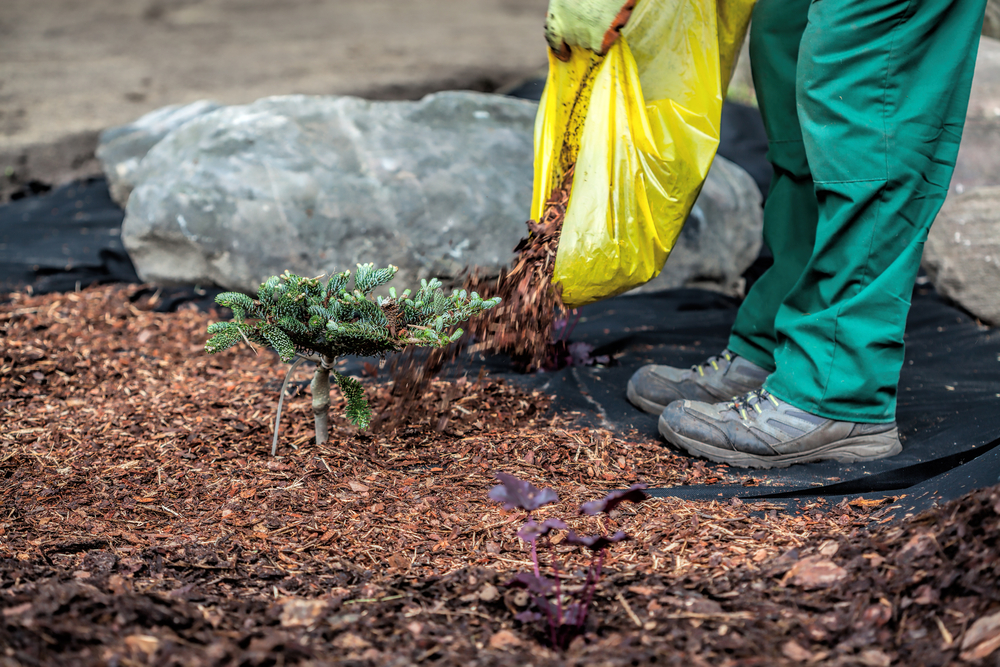Most of us use mulch when planting new plants to help them grow, and in flower beds to keep weeds from growing as much. However, mulch is one of the most essential steps for fall. In fact, mulching can be the difference between life and death for some of your plants.
Why is mulching so important for the fall?
Temperature Regulation
One of the primary reasons to mulch during the fall is the stabilization of ground temperature. The earth’s temperature tends to oscillate during the transition from autumn to winter, which can be detrimental to plant health. By laying down fresh mulch, you essentially add a buffering layer that moderates these temperature shifts. It ensures that the ground beneath the mulch doesn’t heat up and cool down rapidly, which could otherwise lead to repeated freeze-thaw cycles.
Protection Against Ground Movement
With these temperature shifts come the challenges of ground movement or frost heaving. When the soil freezes and thaws repeatedly, it expands and contracts. This movement can force plant crowns—the place where the plant’s stem joins its root, and some of the upper root systems, above the soil surface. When exposed, these delicate parts become susceptible to the bitter cold, which can cause irreparable damage. Fresh mulch acts as a stabilizing force against this movement, keeping plants anchored and reducing the risk of exposure.
Insulation
Mulch serves as an insulator. It traps heat during the day, gradually releasing it during the night, thereby keeping the soil warmer for extended periods. The plants, as a result, are less stressed by sudden drops in temperature, increasing their chances of surviving the winter months unscathed.
Moisture Retention
In addition to temperature fluctuations, fall and winter can sometimes bring dry spells. Mulch assists in retaining soil moisture, ensuring plants have a consistent water supply. Even during colder days, plants require water, and mulch prevents the soil from drying out, especially when the cold winds blow.
Protection from Erosion
Winter weather, particularly in places with heavy snowfall or rain, can lead to soil erosion. A layer of mulch safeguards the topsoil from being washed or blown away, maintaining the garden’s integrity.
Organic Mulch and Soil Health
For those using organic mulch, there’s an added benefit. As these materials slowly decompose over the winter months, they enrich the soil with essential nutrients. Thus, by spring, the soil is more fertile, providing a healthier environment for plants to thrive in the upcoming growing season.
A fresh layer of mulch provides more food for worms and micro-organisms. You want this, because those in turn benefit the soil and provide you a richer soil for plant growth the next spring and summer.
So, take a few minutes and look around your yard. How much mulch will you need to protect your flowers, your gardens, your trees, and your shrubs? If you need help deciding how much, feel free to contact us and let us help. We even deliver much free to make the job easier.

